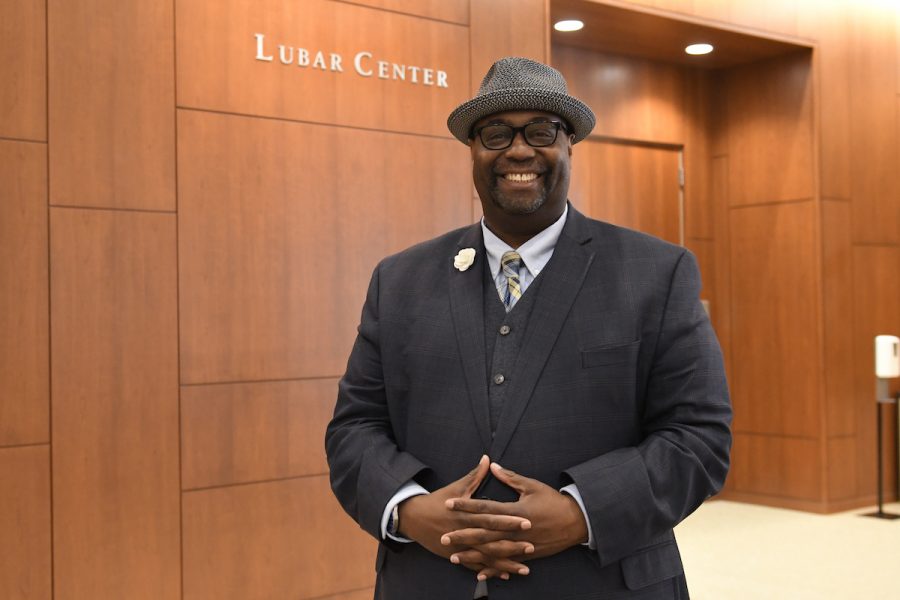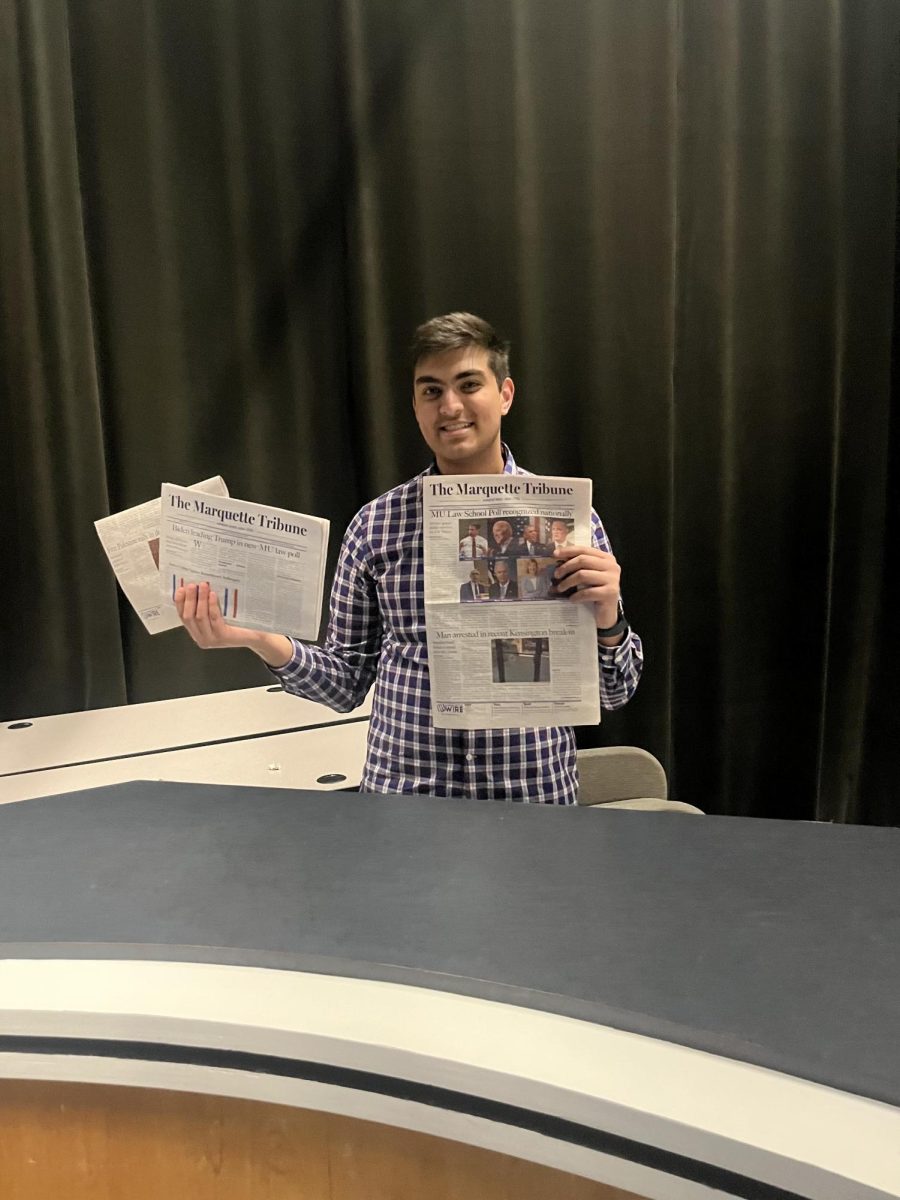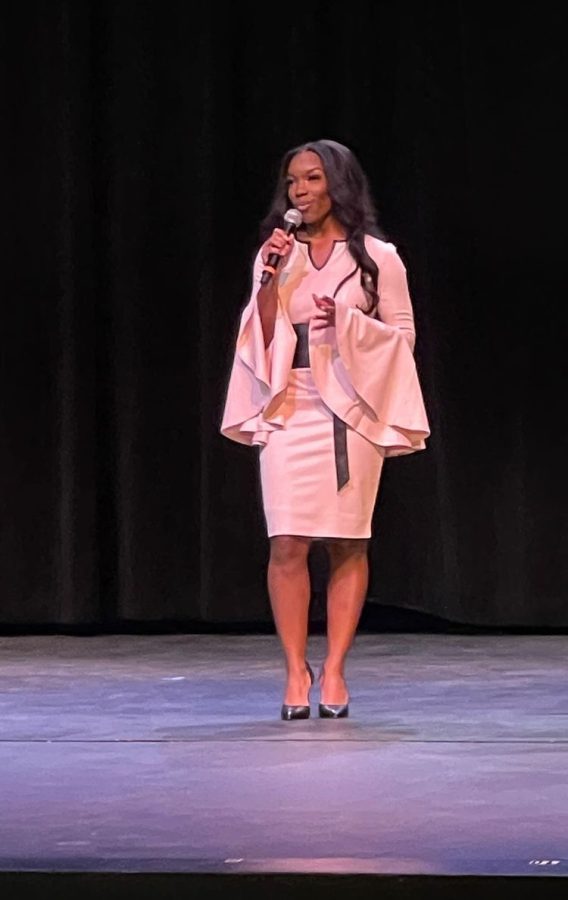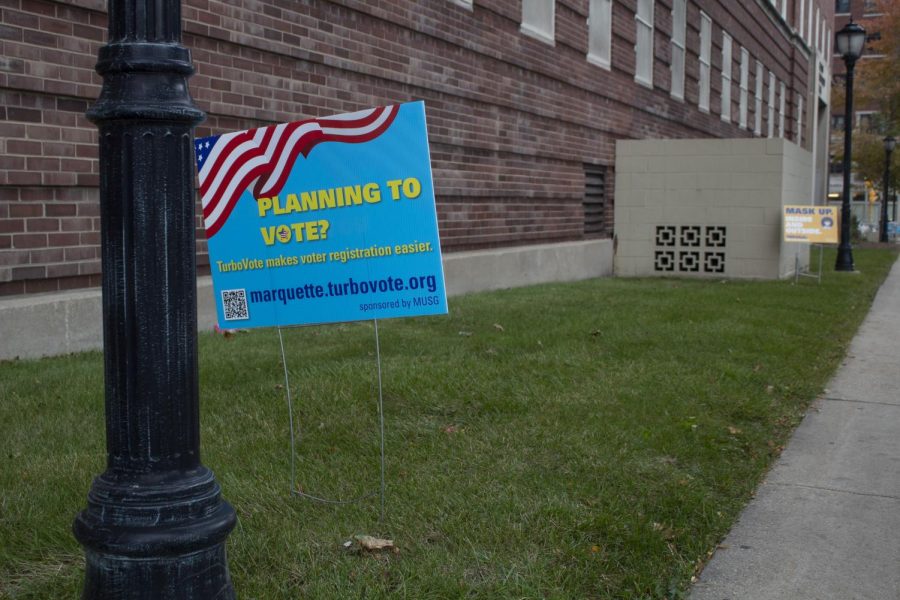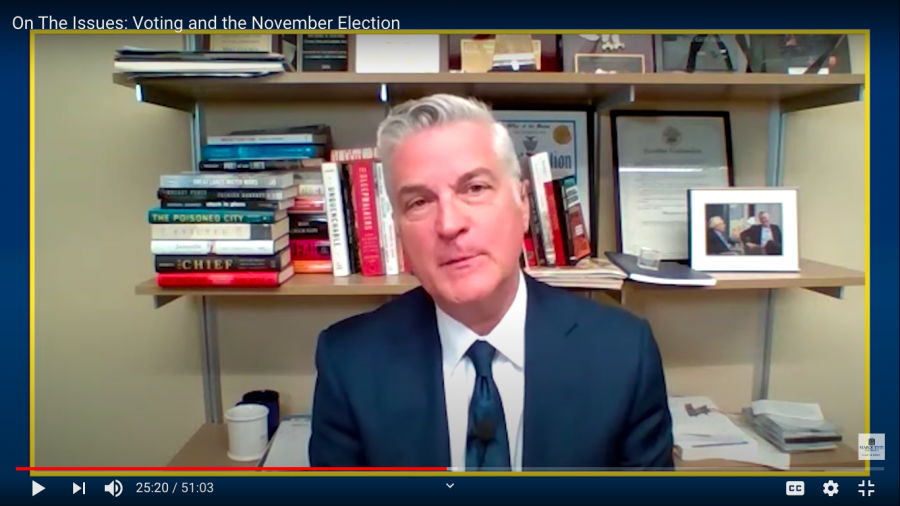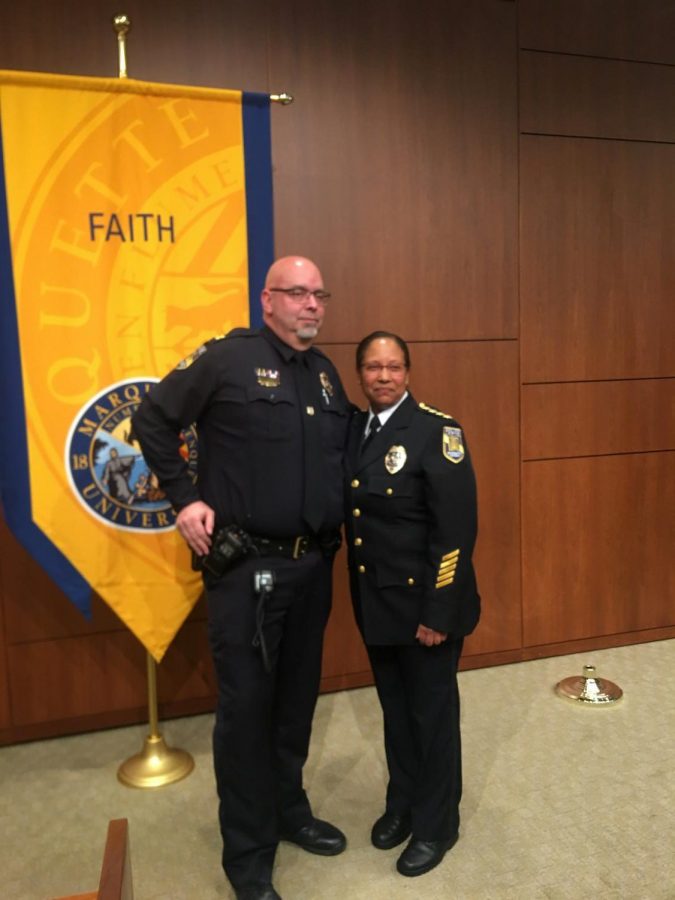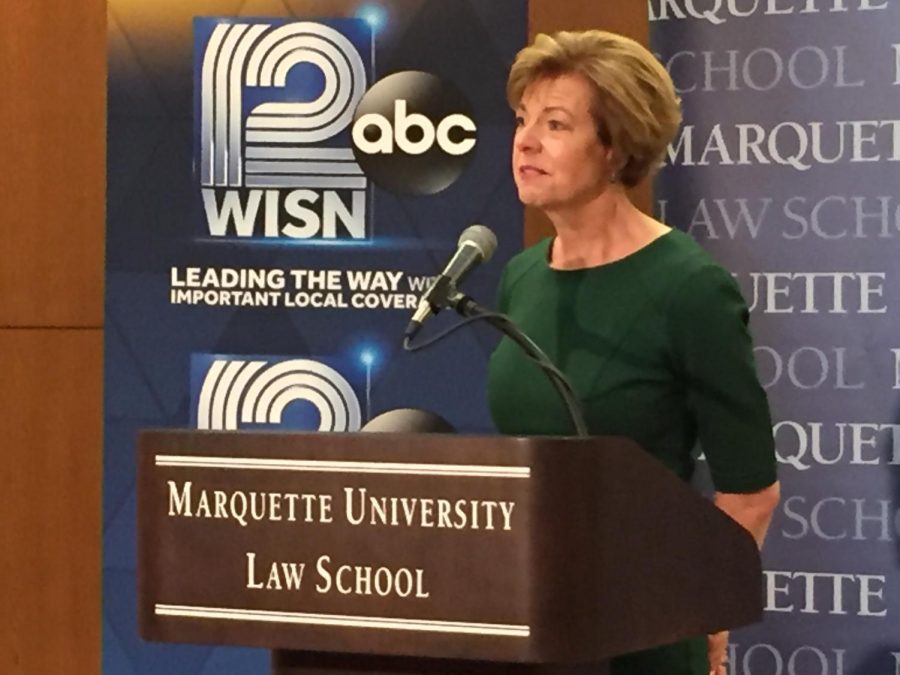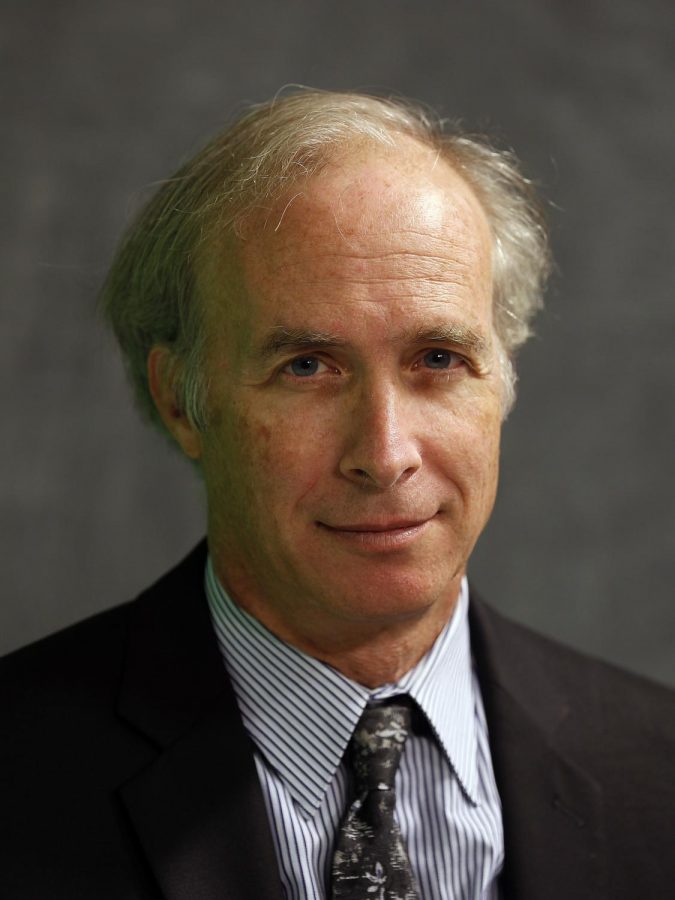Judge Derek Mosley attributed 1980’s television show “L.A. Law” and its only Black lawyer character, Johnathan Rollins, as his initial inspiration for getting into law for what he says were all the wrong reasons.
“He had this house on the beach that overlooked the ocean, and when I was a kid growing up on the southside of Chicago, I never saw a Black lawyer, I didn’t even know Black lawyers existed and then I saw him on this T.V. show and I thought to myself, that’s what I wanted to do,” Mosley said.
Mosley said that it wasn’t until he got into law school that he realized what his true passion was: criminal justice and trying to make the system as equitable as he could.
Mosley was named future director of The Lubar Center Nov. 1 and will be starting the position in January 2023. The Marquette Law School Lubar Center functions as a place for public policy research and civic education; serving not as an advocate, but as a place for people to have constructive conversations on issues of public importance.
“I’m stoked. I’m really stoked. ‘Cause I don’t think Marquette knows what they just got themselves into, because I have big plans for trying to make our little piece of the university a place where people will be talking about, ‘they’re really talking about real issues, real things, really trying to bring people together at Marquette,” Mosley said.
He believes that his current work is more important to him than the BMW and the house on the beach he had originally set out to achieve, taking pride in the connections he has been able to make and the people who he has positively impacted.
“There are encounters that you have with people where you’re at events and someone comes up to me and they’ll say ‘I know you don’t remember me but I was in your court when I was a juvenile and you did this that or the other’ … I had a kid come up to me and say ‘I just won a grammy, I produced Drake’s Album,'” Mosley said. “You have effects on people and it’s a really good feeling.”
Mosley spends his time away from the bench enamored in philanthropic work, engaging people in discussions about unconscious bias and serving on a number of non-profit boards. He has served as a judge in the Milwaukee municipal court for over 20 years.
Mosley believes his first action as director will be scheduling a number of unconscious bias workshops at the Lubar Center, hoping to bring in not just law students, but students throughout the university, as well as community members and beyond.
“It’s an eye-opening lecture, but it’s a lecture that I think everybody should go through,” Mosley said. “It’s not accusatory … or anything like that, it’s more of an informative lecture about the things that have affected you as you grow up as an individual here in America.”
Mosley said his passion for educating others on unconscious bias stems from being a Black man working in a city that has been deemed the most segregated city in America and in a system that tends to negatively affect people of color.
“It’s my mission to change those things and I’m hoping to do that while I’m at the Lubar Center, to get people together so that we can talk and break down those barriers,” Mosley said. “I met with Mr. Lubar and that’s the one thing that he stressed upon me was ‘make sure this is a place where everybody is welcome,’ … everybody’s invited to the Lubar Center to learn more about each other.”
Angela Medcalf, a third year law student and president of the Black Law Student Association, attended a meeting where Mosley met with student organization leaders and said she believes Mosley will engage the Marquette community by dispelling the belief that Lubar Center meetings are only for law students.
“He wants to really partner with the student organizations and more specifically the affinity groups that we have,” Medcalf said. “I think that with Judge Mosley … facilitating those conversations so that we can all know what the Lubar Center is here for and how we can partner with the Lubar Center to achieve all of our goals.”
Professor of law and director of the andrew center of restorative justice, Janine Geske, has known Mosley professionally from their days in the courthouse and personally through community events. Geske described Mosley as a big personality: referring to him as knowledgeable, engaging and a collaborative leader.
“Somebody always trying to improve things and get groups to work with each other,” Geske said. “He’s always worked very hard to make things better. This will give him a platform to bring in a variety of speakers and be able to be a change-maker in the community.”
Geske mentioned the impact that Mosley has had on her personally, incorporating some of his teachings in her classes, stating that we all have our biases that we don’t realize that we need to be more sensitive toward.
Mosley’s passion for bringing people together doesn’t end with events promoting racial equality. Mosley has done extensive work as a wedding officiant, having officiated 1,385 weddings, as well as sharing his passion for food via social media.
“I wanna educate people on different cultures, different foods, different everything so that we are more familiar with each other,” Mosley said.
This story was written by Kevin Fitzpatrick. He can be reached at kevin.m.fitzpatrick@marquette.edu.

